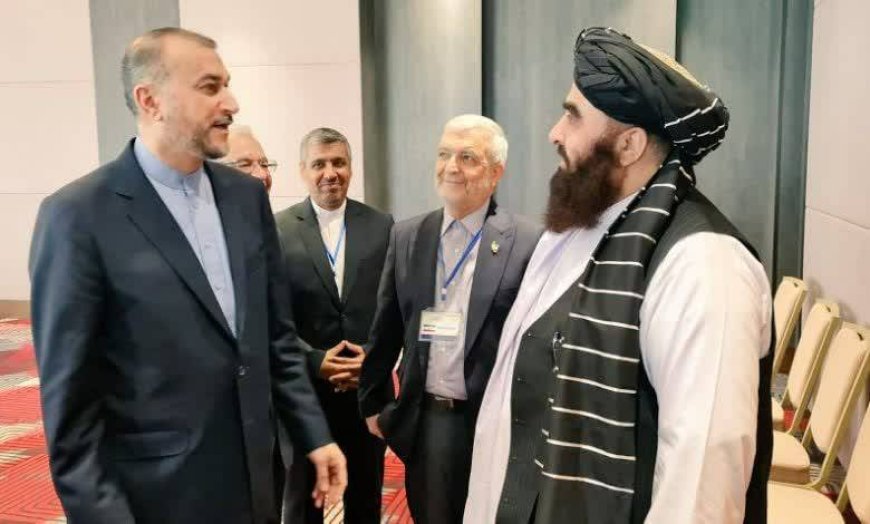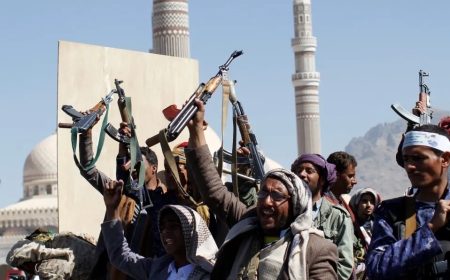Iran's Support and Taliban's Loyalty: Examining Tehran-Kabul Relationship
Iran's Support and Taliban's Loyalty: Examining Tehran-Kabul Relationship

The recent visit of a high-level Taliban official to Doha for discussions with an American delegation has garnered significant media attention. Initially centered on Afghanistan's internal situation, these talks have expanded to encompass broader regional issues and the Taliban's relations with neighboring countries. Reports have emerged, citing the Tehran Times newspaper, suggesting that the United States proposed releasing blocked funds in Afghanistan in exchange for creating instability in Iran. However, sources close to the Taliban vehemently deny accepting such an offer.
The Taliban's rejection of this bold proposition raises important questions about their motivations and highlights the evolving dynamics in the region. Sources within the Taliban negotiating team in Doha have revealed that the United States consistently expressed its willingness to contribute to Iran's insecurity in exchange for certain concessions, including the release of blocked funds. However, the Taliban has consistently responded negatively to these overtures.
To gain a deeper understanding of the Taliban's firm stance against the American proposal, it is crucial to examine the events of the past two years. The reasons behind the Taliban's resolute position can be attributed to two fundamental factors. Firstly, there has been a significant shift in the Taliban's strategic policies and their long-term vision for regional and global interactions. Secondly, the Islamic Republic of Iran has pursued a patient and amicable approach, particularly under the presidency of Ebrahim Raisi which has contributed to the brotherly relationship between Tehran and its neighbors.
Western powers, led by the United States and with the support of Zionist interests, have pursued a strategy of proxy warfare and instigation of conflicts in the Middle East region. Their objective has been to create instability and exploit regional resources. In contrast, the Islamic Republic of Iran has prioritized fostering regional security and cooperation, strengthening bonds between nations, and promoting progress.
It is worth noting that Afghanistan and Iran share a profound historical and cultural connection that extends beyond mere geographical proximity. Afghanistan's historical ties with Iran have persisted for centuries, and the divisions imposed by British colonialism have not erased this shared heritage. Despite changing political landscapes, the Islamic Republic of Iran has consistently supported the Afghan people during times of suffering and insecurity, providing substantial financial aid and support. The current Afghan leadership recognizes this brotherhood and is committed to demonstrating their loyalty to the Iranian government and its people.
The Taliban officials are acutely aware of Iran's steadfast commitment to safeguarding its interests and responding resolutely to any attempts at creating instability or harm. They understand that falling into Western traps designed to instigate proxy conflicts would not serve their long-term goals. Reflecting on history, the Soviet Union faced a similar predicament during its involvement in Afghanistan, with the United States ultimately becoming ensnared in the same quagmire. The failure to achieve their objectives in Afghanistan over two decades, which posed a threat to China and Iran, resulted in a costly withdrawal that severely tarnished America's reputation.
The recent revelations surrounding the American offer to the Taliban can be seen as part of a broader effort by the United States to divert attention from its regional and global scandals. Additionally, it aligns with the Democrats' electoral strategies to fabricate achievements and successes. The Taliban, under the rule of the Islamic Emirate, recognizes that succumbing to America's trap could lead to a lose-lose situation. Instead of releasing their blocked funds, they risk sinking into ruin.













































